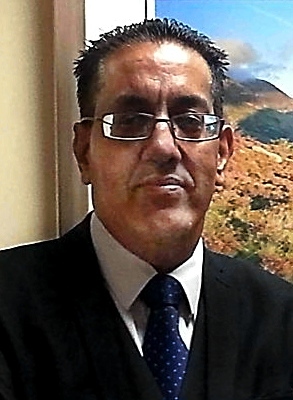The subject is abuse, not ethnicity
Date published: 06 November 2014

Nazir Afzal: it’s about abuse, not race
A major report into child sexual exploitation revealed it had become a “new social norm” in parts of Greater Manchester. Reporter Iram Ramzan spoke to the chief prosecutor for the North-West Crown Prosecution Service, Nazir Afzal.
WHEN any news story featuring the mistreatment of women and girls makes the headlines, it is guaranteed Nazir Afzal will have something to say.
The outspoken prosecutor has commented many times on forced marriage, domestic violence and even female genital mutilation.
Now he wants to ensure child sexual exploitation doesn’t go off the radar, as he puts it.
Mr Afzal hopes Stockport MP Ann Coffey’s report into child abuse in Greater Manchester won’t deter victims from coming forward. But he doesn’t think the report does enough to highlight the achievements of his service.
Ms Coffey’s report suggested that the perceived attitudes of jurors caused the CPS to fail to charge suspects. She reported that In some cases the CPS highlighted the victim’s clothing, or that members of her own family had been derogatory about her behaviour, and that these facts had persuaded the CPS not to prosecute.
In the last six years 12,879 sexual offences against children were reported to GMP, but only 2,341 defendants were charged and 1,078 found guilty.
One of Mr Afzal’s first acts on becoming a chief crown prosecutor was to start prosecutions against the Rochdale grooming gang, overturning an earlier CPS decision.
He said: “I welcome Ms Coffey’s report. She has spent decades in child protection, I have a lot of respect for her.
“But while I recognise there is much to do, the report was unbalanced as far as the CPS is concerned because we have led much of the improvements of the last three years.
“We’re in a better place. One of the things the report didn’t highlight was the conviction rate is the highest ever. I wouldn’t want anything to deter victims from coming forward.”
North-West figures show that in 2013-14, 194 of 288 child abuse cases were successfully prosecuted.
Nationally, prosecution levels for crimes of violence against women rose from 82,165 in 2012-13 to 90,516 in 2013-14. The conviction rate was at the highest level ever, reaching 74.4 per cent in 2013-14.
Mr Afzal stresses the majority of sexual abuse occurs within the home - and by white perpetrators. The second largest incidence is online, the third is institutions — such as in schools — and finally comes street grooming: “It’s a sizeable but small group,” he added.
The judge sentencing the Rochdale gang told the defendants they preyed on girls because they weren’t part of thei community or religion. But as Mr Afzal pointed out, Oldham defendant Shabir Ahmed was also convicted of the rape of a Pakistani girl.
Mr Afzal suggested the grooming gang preyed on vulnerability: “The perpetrators weren’t religious, they were men controlling women and girls. We need to stop getting distracted by ethnicity and focus on what this is — women and girls being abused, feeling they can’t talk about their experiences.
“We should never blame the victims; that’s what the perpetrators want us to do.
“I can assure you, even if you were wearing an Eskimo outfit and wearing more fur than a polar bear, you will still be provoking rape as far as some people are concerned.
“You don’t provoke rape by your dress, or the choices you make. You don’t provoke rape because you’re drinking. In no way is that an excuse for what that man does. The perpetrators are doing it because they want control. As a prosecutor I will make them face the consequences.”
He does believe women of south Asian and other minority backgrounds find it more difficult to speak out due to issues of honour and shame: “Asian victims don’t come forward — it doesn’t mean they don’t exist. We have to reach out to them.”
Mr Afzal said he has received strong support from Pakistani people since the Rochdale case.
The only offensive comments have been from the far right. “I damage their narrative,” he added.
At the same time, work needs to be done with Pakistani and Muslim men, who need to understand “they don’t make the rules.” Last week he criticised Muslim men at a meeting in Bradford, telling the community they had to address the issue of street grooming.
Mr Afzal is taking part in awareness-raising sessions across the country, and will be going to Istanbul later this month for an meeting funded by the Turkish government to discuss domestic violence.
He believes that everyone, ranging from neighbours to teachers, has a role to play in protecting children.
“A lot of children listen to other children. I would love an army of young 18 year olds in Oldham, trained and educating others and training an army of other young people, explaining what human rights are - so people realise they are supported.”
Most Viewed News Stories
- 1You can score free tickets to a Latics game while supporting Dr Kershaw’s Hospice
- 2The Oldhamers handed awards in King’s New Year’s Honours List
- 3Primary school in Uppermill considers introducing new ‘faith-based’ entry criteria to tackle...
- 4Public inquiry announced into rail upgrade that could leave villages ‘cut off’ for months
- 5Tributes paid following death of hugely respected Oldham community figure Dale Harris




